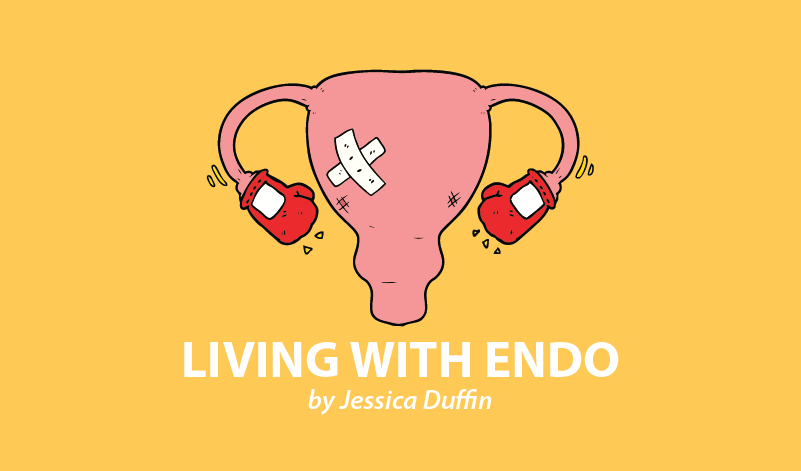
First in a series about endometriosis flare-ups and work.
I remember the agony of going through an endo flare at work like it was yesterday.
I’m now self-employed, and today I’m curled up in bed writing this. Even though I’m at home, it’s still painful, and I still wish I could just close the laptop and watch a mind-numbing movie.
Yet, going through this same torture in the workplace is much harder. So today, I’m sharing my tips for getting through an endo flare day at the office.
Work from home
First, if you can work from home, do so. If you’ve never asked before, now could be the time. Your facilities team may need to do some advance work to get you set up at home, such as getting you a work laptop, etc. You may not be able to do it straight away, but ask if you can. At least if you can’t do it that day, you’ll get the ball rolling.
Don’t beat yourself up about it, either. You’ll be a more efficient employee working from home in the comfort of your dressing gown than you will in a stiff suit, feeling like you’re about to keel over on your keyboard.
If working from home isn’t possible, suggest that you come in one or two hours later (this could give your painkillers a chance to kick in, or give you a bit of time to do some yoga for period pain or whatever it is you find that helps). You can make it up later in the week. You could also ask to leave early, but I find that forcing myself through the day with the hope that I get to crash at the end of it isn’t as helpful as going in late and giving myself a chance to feel a bit better. But of course, do what works for you.
Tell your manager
I know we don’t all have amazing managers, but I assure you, it’s better that you communicate with them about how you’re feeling. If you can’t face saying it to them in person, drop them an email. You don’t have to go into much detail, you could just mention your condition is playing up, you’re in a significant amount of pain, and you wanted to make them aware of the situation. It’s professional, and if you struggle through the day, you won’t have to defend yourself later on (hopefully) when they’re questioning why you haven’t been your normal self.
It’s also a form of protection. Employers have a duty of care to their employees, but it is also the employee’s responsibility to communicate what’s happening. While we’d hope that employers are observant, check in regularly and hold one-on-one meetings. We can’t always ensure that, so taking responsibility and making sure our voices are heard protects us if complications arise down the line.
Tell someone you’re close to
When I was in full-time employment, I had a few people I was really close to. One of them sat with me on my team. She was amazing at noticing when something was up, and I could always let her know if I wasn’t feeling well. It helped to have a colleague who was also a friend (or at least friendly) on my side — someone I could bitch to if needed, someone who chatted with me in the bathroom if I was crying, or someone who’d make me a soothing tea when I needed it. Even if she didn’t do any of that, just having her there and knowing what I was feeling was a huge comfort, and made me feel less like I had to be a warrior on my own.
These are the steps to take that involve your employers and colleagues that can affect your work situation for the better. While these conversations can sometimes be awkward, they can save you a lot of pain and miserable days in the future by providing you with the right support, and a day working from home if possible.
Next week, I’ll explore what you can do personally and practically to help ease your pain and make your day at work a bit more manageable.
***
Note: Endometriosis News is strictly a news and information website about the disease. It does not provide medical advice, diagnosis, or treatment. This content is not intended to be a substitute for professional medical advice, diagnosis, or treatment. Always seek the advice of your physician or other qualified health provider with any questions you may have regarding a medical condition. Never disregard professional medical advice or delay in seeking it because of something you have read on this website. The opinions expressed in this column are not those of Endometriosis News or its parent company, BioNews Services, and are intended to spark discussion about issues pertaining to endometriosis.

